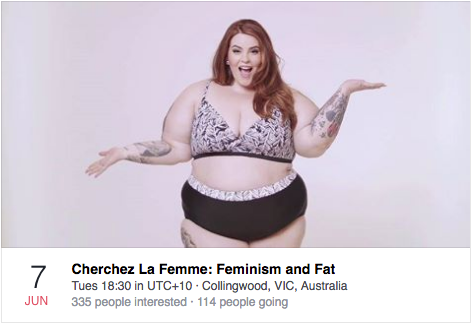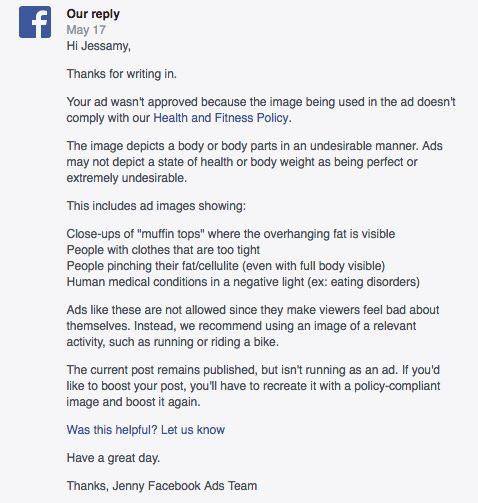Facebook reverses decision to ban 'undesirable' advert featuring plus-size model Tess Holliday
The social media site has apologised for the initial decision

Your support helps us to tell the story
From reproductive rights to climate change to Big Tech, The Independent is on the ground when the story is developing. Whether it's investigating the financials of Elon Musk's pro-Trump PAC or producing our latest documentary, 'The A Word', which shines a light on the American women fighting for reproductive rights, we know how important it is to parse out the facts from the messaging.
At such a critical moment in US history, we need reporters on the ground. Your donation allows us to keep sending journalists to speak to both sides of the story.
The Independent is trusted by Americans across the entire political spectrum. And unlike many other quality news outlets, we choose not to lock Americans out of our reporting and analysis with paywalls. We believe quality journalism should be available to everyone, paid for by those who can afford it.
Your support makes all the difference.Facebook has reversed its decision to ban an advert featuring plus-size model Tess Holliday and apologised for not initially approving the image.
A Facebook advert with a picture of Holliday in a bikini was banned by the social media giant because it “depicts a body or body parts in an undesirable manner”.
Australian feminist group Cherchez La Femme sought to promote an ad for its “Feminism and Fat” panel discussion but Facebook banned the picture because they said it didn’t comply with their health and fitness policy.
Facebook has now reinstated the image. “Our team processes millions of advertising images each week, so we occasionally make mistakes," a spokesperson told The Independent.
"To be clear, the image complies with our advertising policies. We have now approved the image and apologise for any offence this caused.”

Prior to this, Facebook told Jessamy Gleeson, the author of the post and one of the organisers of the event, the image would not be taken down but it was prohibited from being promoted elsewhere on the platform.
“The image depicts a body or body parts in an undesirable manner,” a message from the Facebook Ads team read.

“Ads may not depict a state of health or body weight as being perfect or extremely undesirable."
Other images which fall under this remit are close-ups of ‘muffin tops’ where the overhanging fat can be seen, people in too-tight clothes and images which present eating disorders in a negative light. They also said the organisation might want to use “an image of a relevant activity, such as running or riding a bike”.
Gleeson told The Independent she was furious with the initial choice.
“We're both disappointed and angry at Facebook's decision to not approve our ad featuring Tess Holliday,” she said. “There is a huge double standard at play when it comes to Facebook approving images of traditionally 'thin' women when compared to other body shapes and sizes.”
Gleeson explained they chose Holliday for the image because she is an empowering individual. “She's a powerful demonstration of how fat women can do just as many fantastic things as anyone else,” she said. “I'm actually a PhD student in social media and feminist activism, and in my research have seen how strongly women feel about seeing accurate representations of themselves in the media.”
A representative for Holliday did not immediately respond to request for comment.
Join our commenting forum
Join thought-provoking conversations, follow other Independent readers and see their replies
Comments